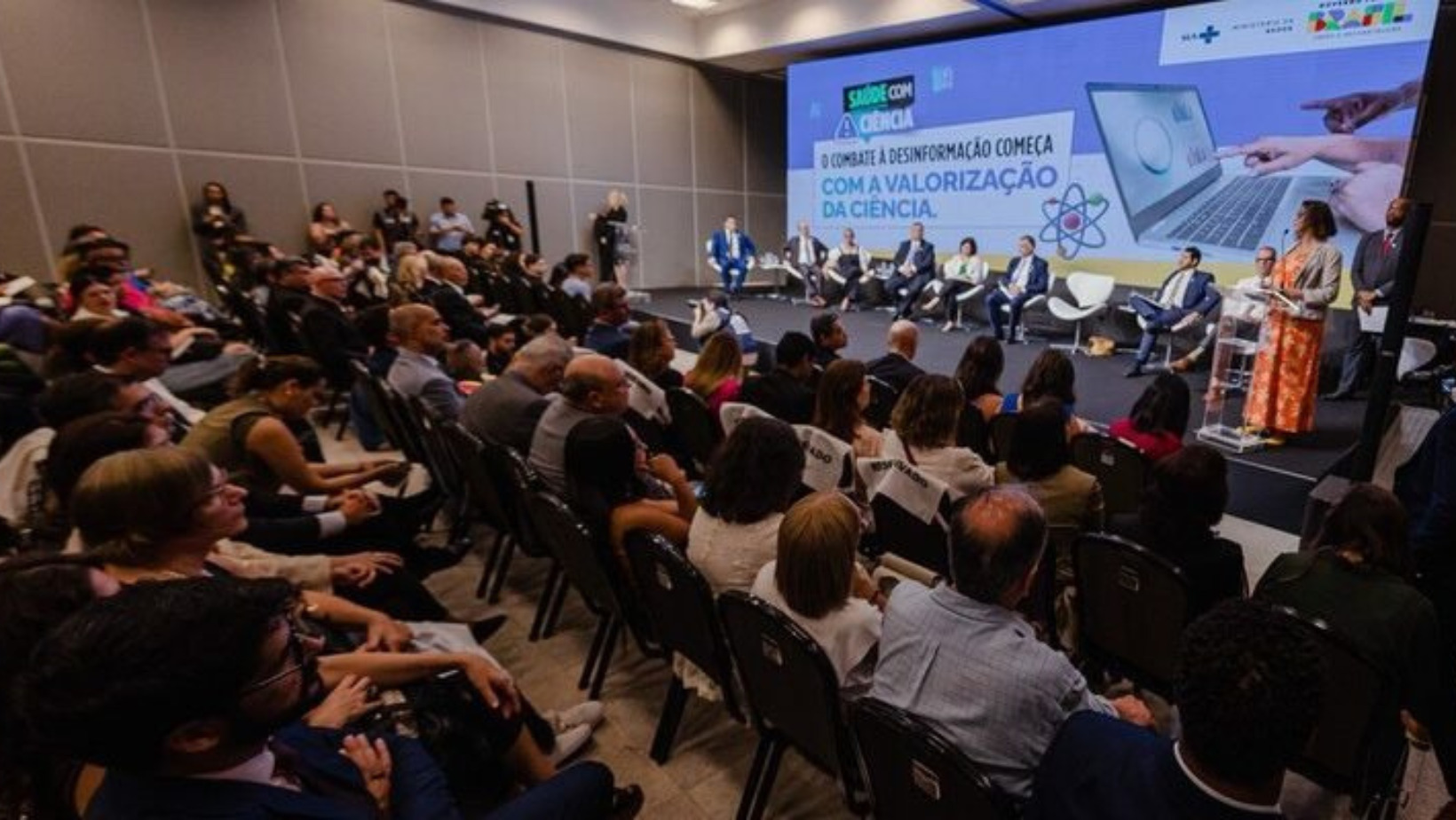Hey National Program for the Popularization of Science (POP Science)launched this week by the Ministry of Science, Technology and Innovation (MCTI), is an initiative that represents an important step for Brazil to develop Scientific culture In an institutional, more organized, democratic and networked way, linking technology and innovation to inclusion and diversity.
To achieve this, many practices must be strengthened and new policies must be built that meet the program’s themes. Among the new features is the creation of Virada da Ciência, which will focus more on staff and people outside the school environment, and focus on inclusion and diversity.
To come up with this proposal and all directions of POP science, the Science and Technology Popularization Committee was formally established. “A committee that actually represents the community and the different actors coming together to spread science.”, highlighted the Director of Science, Mainstreaming and Science Education at MCTI, Juana Nunes. The mission of this group is to propose actions and strategies, create political communication, and mobilize various sectors of government and civil society to achieve them.
Rodrigo Reyes, Dean of Extension and Culture at the Federal University of Parana (UFPR), explains that the initiative reinforces a policy that has been operating in Brazil since 2004 in the field of popularization and dissemination of science. “The decree gives power to both MCTI and other government bodies to develop and promote actions related to the subject. POP Sciences says, for example, that these actions will be promoted through specific notifications for the region and its various hubs.”“, highlights Rodrigo.
The General Coordinator of Agência Escola UFPR, Scientific Publishing Researcher, Reggiani Ribeiro, also participated in the preparation of POP Ciência and adds more positive points to this plan. “In addition to including all the initiatives that have been taking place in this field for many years, and which have already been strengthened, such as the National Science and Technology Week, for example, it opens a space to think about new axes, including the diversity of science not only in issues of identity, But also in opening up the institutional space for traditional knowledge and its technologies is also worth strengthening An opportunity to link science and art Promoting interaction between artists, folk teachers and scientists in promoting scientific culture. enhances.
Network science
Science is collective and this vision must be expanded through the establishment of the “Science Networks” set forth in Pop Science. Paraná has the first government network in the region: Parana does sciencewhich is supported by the Araucária Foundation and also by MCTI. “I hope it will serve as a model for other countries to organize networks. The idea is that networks can organize different initiatives, such as museums and science fairs, for example, from the perspective of the province or region in which they are located.”“, explains Rodrigo Reyes, who is also coordinator of the New Research and Innovation Arrangement (NABI) Paraná Vaz Ciencia.
The Paraná Network was created to bring together professionals and students working in the field of science communication, thus learning more about procedures and spaces with this focus to expand exchanges and partnerships. Dean of Extension and Culture at the State University of Maringá (UEM) and advisor to the Araucaria Foundation, Deborah Santana, believes that the program offers the potential to expand actions already implemented. “I believe that the state of Paraná is currently among the most regulated states in the field of scientific publishing and has the greatest potential for growth in this field. The network has contributed to this regulation and publishing, and with the new support and funding, it will contribute even more. The Araucaria Foundation has invested a lot in scientific publishing “This is unprecedented in local history, and certainly in most states in Brazil. Your role has been fundamental to the progress we have seen.” says Deborah.
Challenges
Some of the challenges facing the committee and science communicators are:
- combating disinformation;
- Raising awareness about climate change;
- Expanding diversity in science;
- Strengthening actions to combat social inequality.
To achieve these achievements, the Director of Science, Mainstreaming and Scientific Education at MCTI explains that it is necessary to improve the quality of teaching in public schools, provide quality scientific education to children and youth, in addition to working outside the public school. Actions must reach workers, older people and vulnerable populations, and recognize indigenous and quilombola knowledge. All this is on an inter-ministerial agenda. “Democracy of knowledge means bringing our wealth, what we do and produce, to society and recognizing that society also produces knowledge.“, explains Juana Nunes.
Check the ordinance
POP Science was announced by Minister Luciana Santos during the launch of the Health with Science programme, on October 24, an inter-ministerial initiative coordinated by the Ministry of Health and the Social Communication Secretariat of the Presidency. Check the Decree establishing the National Program for the Popularization of Science (Popular Science) and the Committee for the Popularization of Science and Technology (Popular Committee).
Access the full article: Popular, democratic and diverse: MCTI launches the National Program for Science Popularization.
By Alice Lima/Agência Escola UFPR
Featured image: Ministry of Science, Technology and Innovation (MCTI)

“Wannabe internet buff. Future teen idol. Hardcore zombie guru. Gamer. Avid creator. Entrepreneur. Bacon ninja.”

